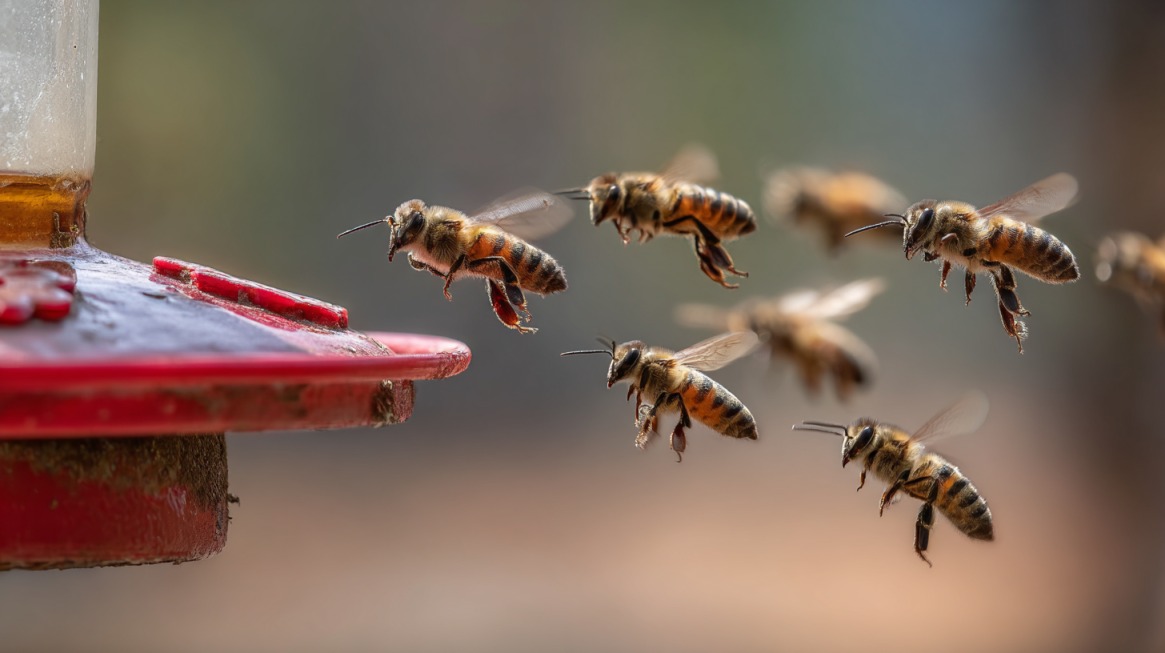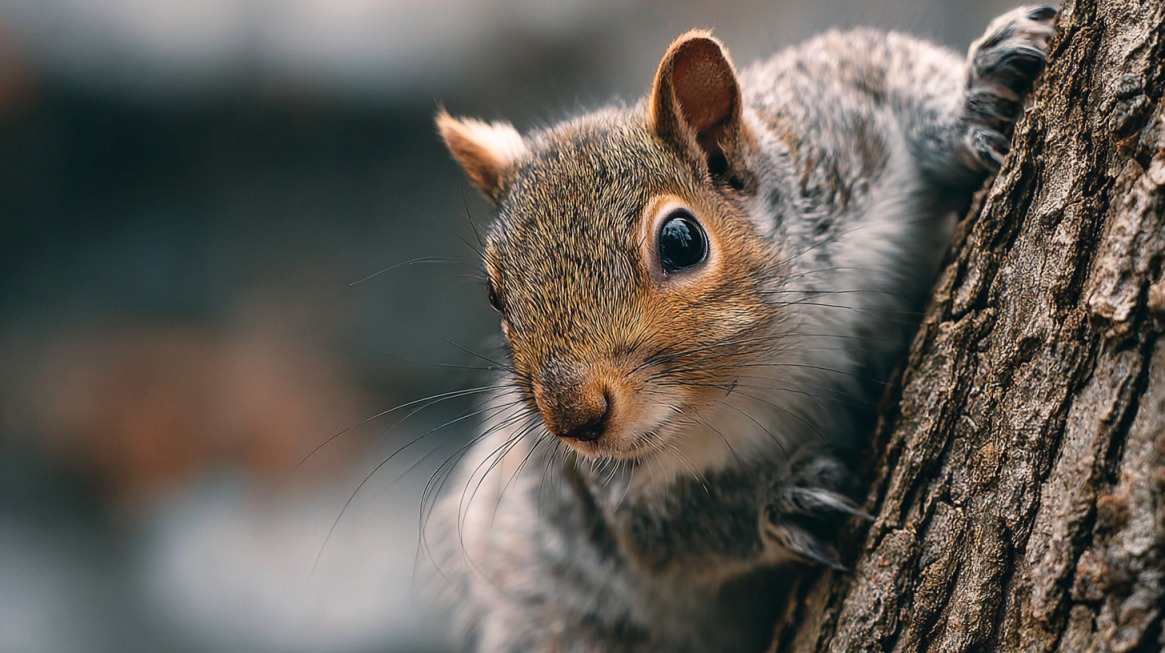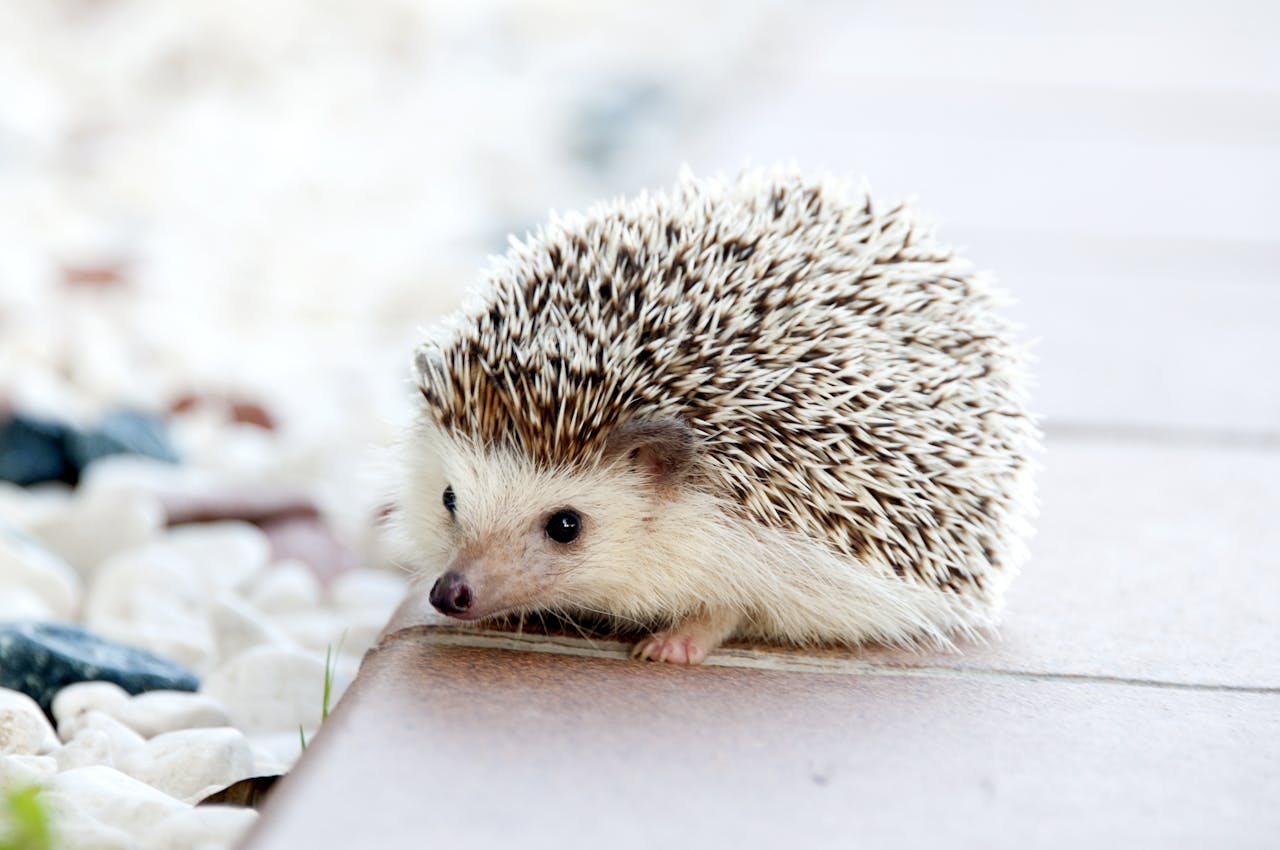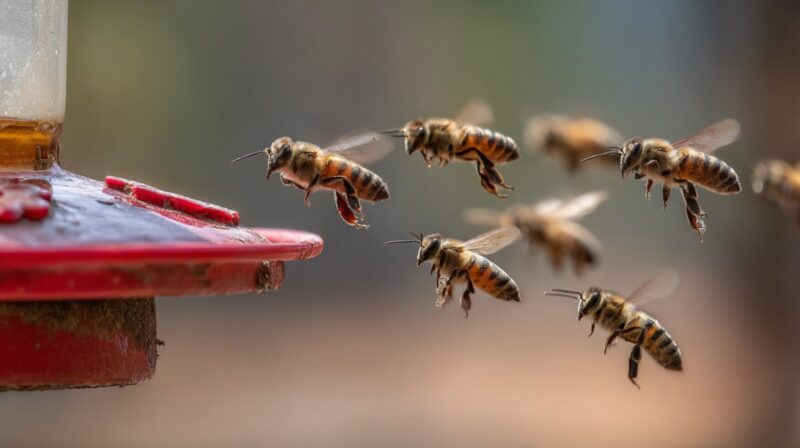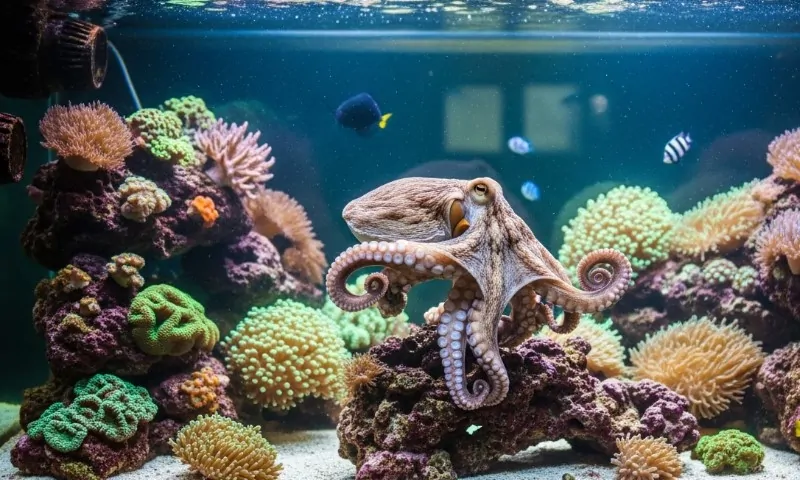
Share Post:
At first glance, the idea of keeping an octopus as a pet sounds fascinating, like having an alien roommate that can solve puzzles, change colors, and squeeze through impossibly small spaces.
But while the curiosity is understandable, owning an octopus is nothing like keeping a goldfish or a coral reef tank. These intelligent, sensitive, and short-lived animals have extremely complex needs that make them both mesmerizing and challenging to care for.
So, can you keep an octopus as a pet? The short answer is yes, but only under very specific, responsible conditions, and often, it’s not a good idea for casual hobbyists.
Table of Contents
ToggleOctopuses Are Wild, Intelligent, and Escape Artists
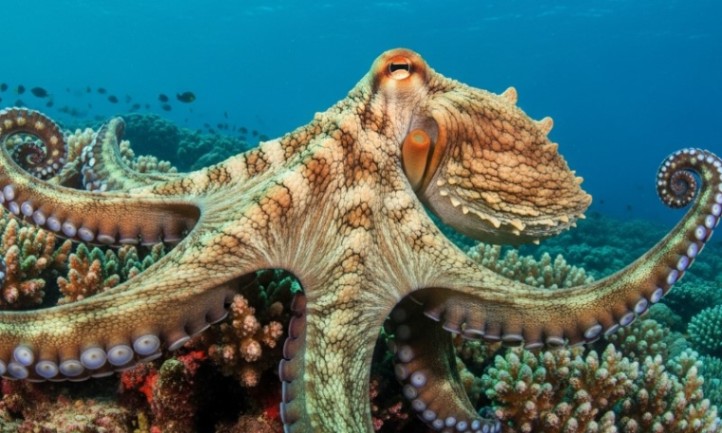
Octopuses are among the smartest invertebrates on Earth. They can open jars, recognize faces, and even learn through observation. In captivity, that intelligence quickly turns into curiosity-driven mischief.
Owners often report octopuses escaping their tanks at night, exploring the room, or stealing food from nearby aquariums.
| Octopus Trait | Behavioral Impact in Captivity |
| High intelligence | Needs constant mental stimulation |
| Curiosity | Tries to explore beyond the tank |
| Flexibility | Can squeeze through openings as small as a coin |
| Problem-solving ability | Opens lids, valves, and filter covers |
Without enrichment, puzzles, shells, rocks, and live food to hunt, an octopus can become stressed or even die prematurely.
Most Species Are Not Suitable for Home Aquariums
There are more than 300 species of octopus, but only a handful can be kept in home aquariums at all. Many grow too large, need deep-sea conditions, or have venomous bites.
Commonly Kept Species (for Experienced Owners)
| Species | Size | Lifespan | Tank Size Required | Notes |
| Common octopus (Octopus vulgaris) | Up to 3 ft | 1–2 years | 100+ gallons | Intelligent but demanding |
| California two-spot (Octopus bimaculoides) | 2 ft | 1–2 years | 75+ gallons | Hardy, interactive, cold water |
| Atlantic pygmy (Octopus joubini) | 4 in | 6–12 months | 30–50 gallons | Small but very short-lived |
| Caribbean reef octopus (Octopus briareus) | 2 ft | 1.5 years | 70–90 gallons | Nocturnal, shy but beautiful |
Tank Setup: Complex and Expensive
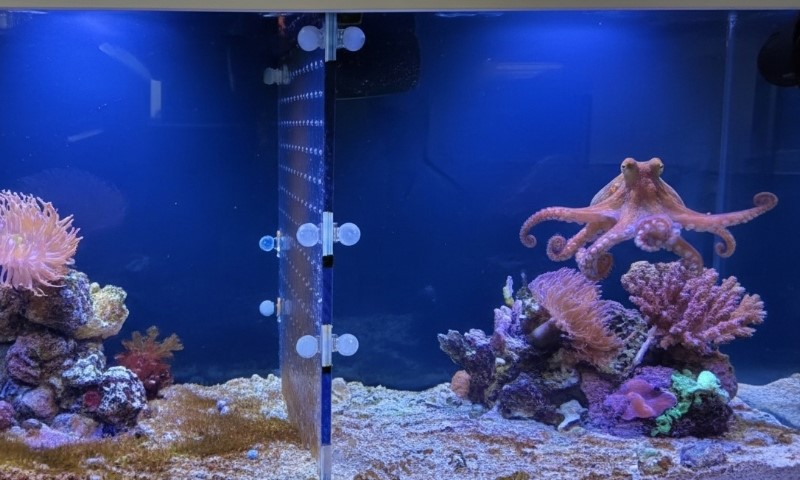
Keeping an octopus isn’t about dropping it into a saltwater tank and adding decorations. It’s about mimicking a natural reef environment that provides enrichment, safety, and stability.
Essential Tank Requirements
| Feature | Requirement |
| Tank Size | Minimum 50–100 gallons (depending on species) |
| Temperature | 59–77°F (15–25°C), species dependent |
| Salinity | Stable marine salinity: 1.022–1.026 SG |
| Filtration | Strong, oxygen-rich water circulation |
| Tank Lid | Completely sealed (octopuses can lift glass and crawl out) |
| Lighting | Low to moderate, many are nocturnal |
| Hiding Spaces | Rocks, shells, caves, PVC pipes |
| Water Quality | Near-perfect octopuses are extremely sensitive to ammonia and nitrates |
Octopuses produce a lot of waste, so pristine water quality is crucial. A small imbalance can stress or kill them within hours.
They Have Very Short Lifespans
One of the biggest emotional challenges of keeping an octopus is how little time you’ll have with it.
Most species live only one to two years, even in ideal conditions. Many die soon after reproducing, a natural process called senescence, where the body shuts down following egg-laying or mating.
| Species | Average Lifespan in Captivity |
| California Two-Spot | 12–18 months |
| Common Octopus | Up to 2 years |
| Pygmy Octopus | 6–8 months |
| Blue-Ringed Octopus | 6–12 months (and highly venomous) |
This short lifespan means you may spend months preparing a tank and only enjoy the animal for a brief time before it naturally declines.
Feeding: Live and Varied Diet
Octopuses are carnivores with specific dietary needs. They prefer live food, which can be hunted, as a crucial form of mental stimulation.
| Food Type | Examples | Notes |
| Crustaceans | Shrimp, crabs | Primary diet in the wild |
| Mollusks | Clams, snails | Good calcium source |
| Fish | Small feeder fish | Should be occasional, not daily |
| Frozen food | Thawed shrimp or squid | Acceptable supplement, not replacement |
Owners must feed them regularly and clean uneaten food quickly to prevent contamination. Many octopuses refuse dead food entirely, which can make feeding expensive and time-consuming.
Ethical and Legal Considerations
Keeping an octopus isn’t just a hobby; it raises ethical and ecological questions.
- Octopuses are solitary, intelligent animals that experience stress and potentially pain.
- Most available for sale are wild-caught, not captive-bred, which contributes to reef ecosystem depletion.
- Some countries and states restrict octopus ownership under animal welfare or marine protection laws.
For example, in parts of Europe and the UK, octopuses are recognized as sentient beings, meaning they can experience emotions, leading to stricter welfare standards.
Alternatives: Ethical Marine Pets
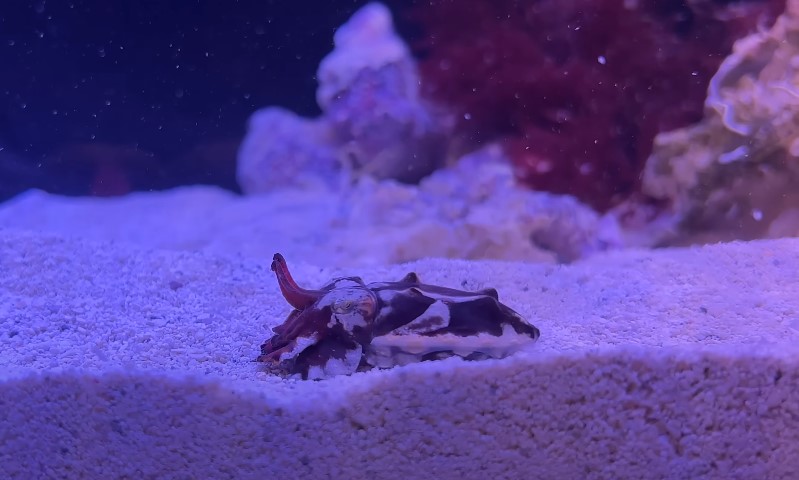
If you’re drawn to the beauty and mystery of marine life but want a more sustainable, beginner-friendly choice, consider these alternatives:
| Animal | Ease of Care | Why It’s Better for Beginners |
| Cuttlefish | Moderate | Intelligent but less escape-prone |
| Cleaner shrimp | Easy | Active, reef-safe, fun to observe |
| Clownfish (like Nemo) | Easy | Hardy, colorful, and personable |
| Coral and anemones | Moderate | Offer vibrant aquascaping challenges |
These species allow you to experience the wonder of marine ecosystems without the ethical and logistical challenges of caring for a cephalopod.
The Bottom Line
Keeping an octopus as a pet can be fascinating; they are intelligent, graceful, and almost alien in their behavior. But it’s also one of the most challenging and ethically complex forms of marine keeping.
If you have advanced aquarium experience, patience, and a deep respect for marine life, you might provide a safe and stimulating home for one. But for most people, it’s better to admire these creatures in aquariums or the wild, where they can roam, hunt, and live as nature intended.
In short: You can keep an octopus, but you probably shouldn’t unless you’re ready for the responsibility, the expense, and the heartbreak of saying goodbye too soon.
Related Posts:
- How Fast Can an Ostrich Run? Everything You Need to Know
- Top 15 Small Parrot Species You Can Keep as Pets
- Pamper Your Pet: Must-Have Gifts to Make Your Pet’s…
- Is Online Pet Health Advice Safe? Protect Your Pet…
- How Fast Can an Alligator Run on Land? - What to Know
- Top 10 Migratory Birds in The World You Need to Know About





